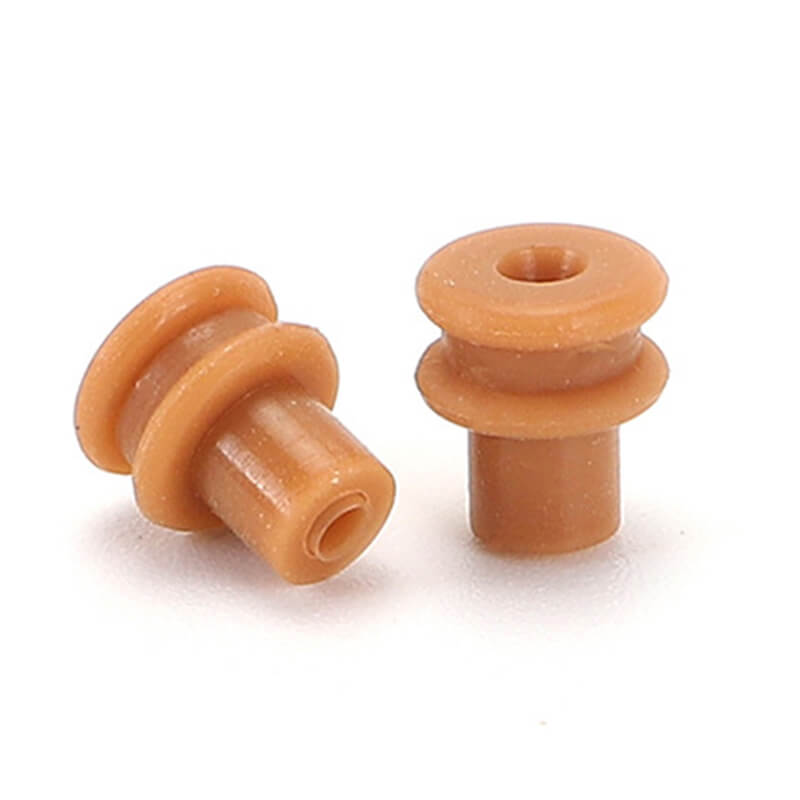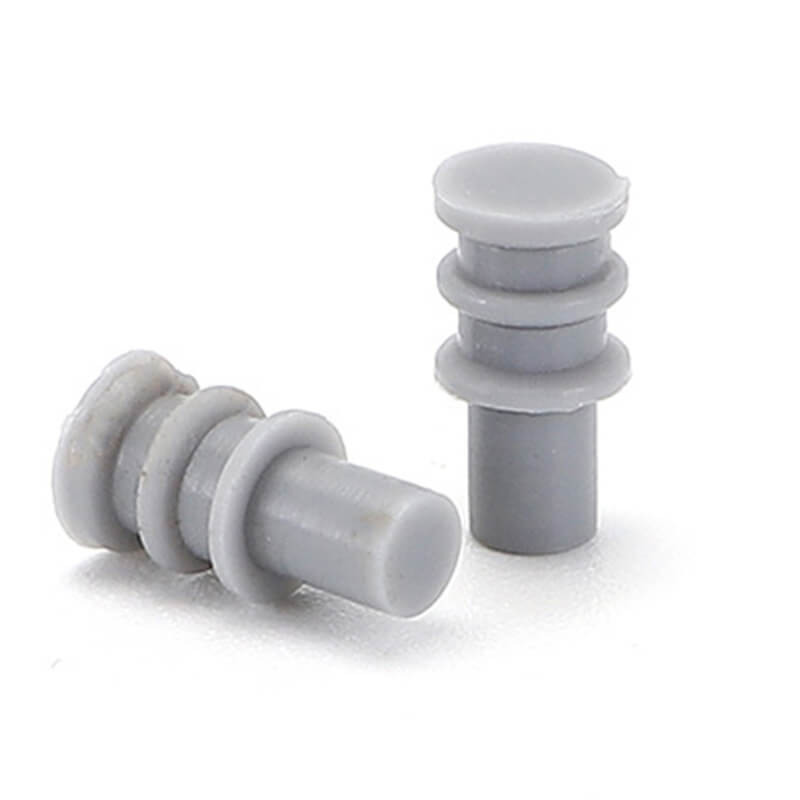A sealing plug is a device that is used to seal an opening in a pipe, tube, or other container. It is typically made of a soft, pliable maTerial, such as rubber or silicone.

To prevent the flow of fluids or gasses.
To protect against dust and dirt.
To seal against moisture and other contaminants.
To protect against vibration and noise.
Sealing plugs are available in a variety of sizes and shapes to fit different openings. They are also available in a variety of materials to suit different applications.
Leak prevention: Sealing plugs help to prevent leaks of fluids and gasses.
Contamination protection: Sealing plugs help to protect against dust, dirt, water, moisture, and other contaminants.
Noise and vibration reduction: Sealing plugs help to reduce noise and vibration.
Ease of use: Sealing plugs are easy to install and remove.
Cost-effectiveness: Sealing plugs are a cost-effective way to seal openings and protect systems and devices.

Overall, sealing plugs are a versatile and effective way to seal openings and protect systems and devices. They are available in a variety of sizes, shapes, and materials to suit different applications.
Sealing plugs work by inserting them into openings or apertures that need to be sealed. These plugs are designed to fit snugly, creating a barrier that prevents the entry of unwanted substances. Depending on the type of plug, they can use various sealing mechanisms such as compression, expansion, or thread engagement to establish a secure seal. The choice of plug and its sealing method depends on the specific application and the type of opening that needs to be sealed.
Sealing plugs are manufactured from a variety of materials to suit different applications. Common materials include rubber, silicone, plastic, metal, and composite materials. The choice of material depends on factors like the intended use, environmental conditions, and the required durability and sealing properties. For instance, rubber or silicone plugs are often used in plumbing for their flexibility, while metal plugs are favored for their strength and resistance to high temperatures.
Yes, there are various types of sealing plugs designed for specific applications. Some common types include expansion plugs, thread protectors, Tapered Plugs, and push-in plugs. Expansion plugs use a compressible element to create a seal, thread protectors are used to protect threaded holes, and push-in plugs are inserted manually. The choice of type depends on the specific sealing needs of the application.
In many cases, sealing plugs can be reused, depending on their design and the specific application. Some plugs are designed with features that allow for easy removal and reinsertion, while others may have a more permanent sealing function. The ability to reuse a sealing plug should be considered when selecting the appropriate type for a given application.
Sealing plugs have a wide range of industrial uses. They are commonly used in the oil and gas industry to protect and seal pipes and threaded connections. They are also employed in manufacturing to close off openings in equipment or machinery, preventing contamination and ensuring safety. Additionally, sealing plugs are used in electrical and electronic applications to safeguard sensitive components from moisture and dust.
Yes, sealing plugs are available in materials that can withstand extreme temperatures. For high-temperature applications, metal or heat-resistant materials are often used. These plugs maintain their sealing properties even in conditions with intense heat, making them suitable for a wide range of industrial and engineering applications.
Sealing plugs are commonly used in industries where corrosion prevention is crucial, such as marine, offshore, and chemical processing. These plugs protect threaded connections and openings from exposure to corrosive environments, extending the lifespan of equipment and components.
To choose the right size, measure the opening's diameter or thread size. Select a sealing plug that matches these dimensions closely to ensure a secure fit. It's essential to consider the plug's expandability or compressibility if the fit needs to be adjustable.